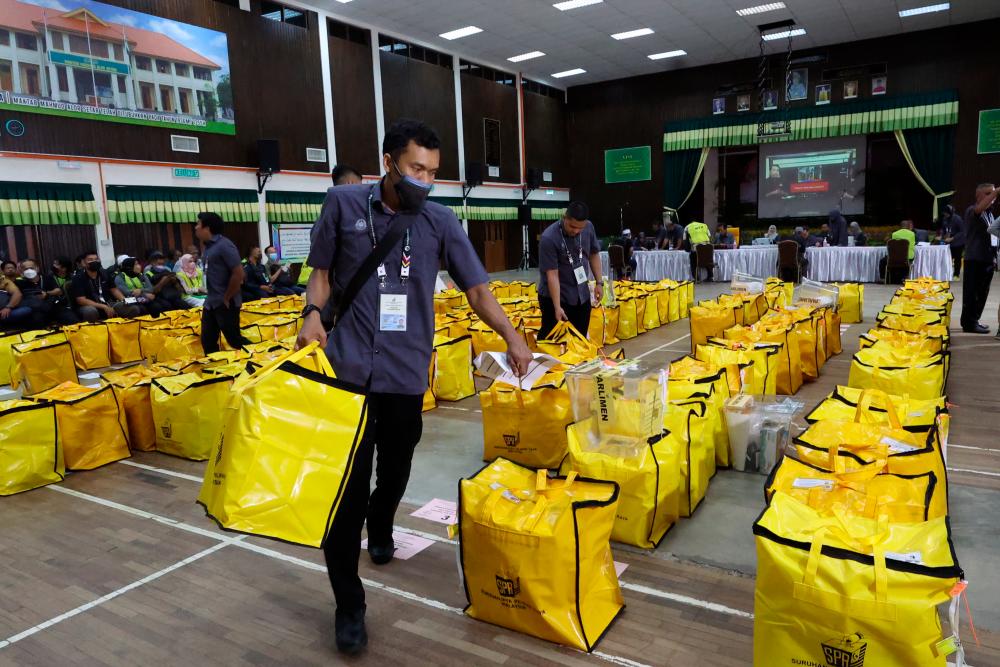PETALING JAYA: Any attempt by the Election Commission (EC) to extend the time frame between the dissolution of parliament and the calling of elections to more than 60 days will have far-reaching implications for the country, said National Council of Professors senior fellow Datuk Dr Jeniri Amir.
He was commenting on EC chairman Tan Sri Abdul Ghani Salleh’s remark on Wednesday that widening the time frame would give the EC sufficient time to prepare for a general or state election as the number of voters has been increasing annually.
He said the EC would try to extend the duration, which has been adopted for a long time, because with the number of voters has increased tremendously and the 60-day period is too short to prepare for elections.
Abdul Ghani pointed out that during GE15, there were 21.1 million voters compared with 14.9 million previously, and that it had to consider that 18-year-old voters will keep increasing at a rate of 500,000 annually, thereby necessitating a longer preparation time.
However, Jeniri said he does not understand why the EC needs more than 60 days to prepare for elections.
“The reason of more voters coming onto the electoral roll is not acceptable. Today, there is state-of-the-art technology available to deal with such things. Even if the EC is short-handed, it can always turn to technology for help. The only time the EC will need extra workers is when elections are held.”
Jeniri pointed out that the country does not hold general or state elections every year but only once every five years, and this means the EC has ample time to prepare for elections.
“The EC needs to act proactively to deal with problems that may arise, but suggesting that the 60-day time frame be extended is not the answer. The longer the time frame is extended, the longer the country will have a caretaker government, and this does not bode well for the country.”
He said a caretaker government cannot make any major spending and policy decisions. This can have a major impact on the national economy as it can only manage the day-to-day running of the government.
Nusantara Academy for Strategic Research senior fellow Prof Dr Azmi Hassan said extending the period before campaigning and voting can be held is not a good idea.
He said the EC must come up with a better explanation than the reason that more voters are being registered yearly, as it has more than three to four years to prepare for elections.
“The EC may have its reasons for wanting the 60-day time frame extended, but it needs to explain it to the public because it has ample time to prepare for polls.
“In terms of maintaining our democracy, the impact of extending the time frame remains unclear.”
Azmi said voter registration is now being conducted online, and this makes the work of the EC much easier, adding that with the technology that is available to help the EC, he cannot understand why 60 days are not enough.
“Currently, the EC only has to deal with polls involving parliament and a few state seats. This makes the EC’s work easier and it does not need as many workers.
“Many states can now hold their elections at different times, although the cost of doing so may go up. Still, there will be a reduction in the manpower required to deal with the polls.”
Azmi said this shows the EC would have more than enough time to prepare for elections as they have been spread out.










